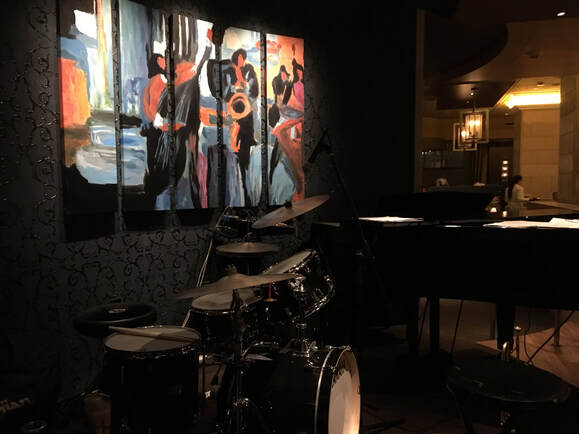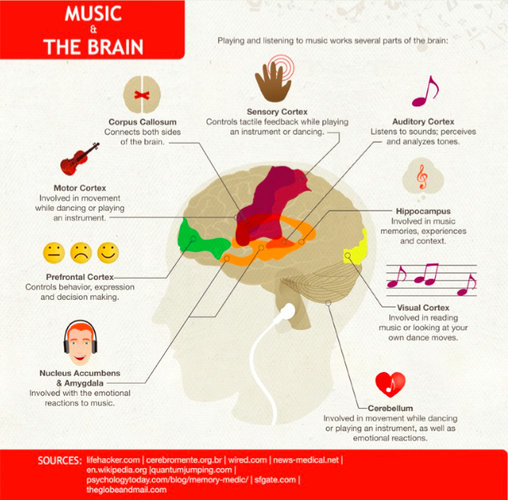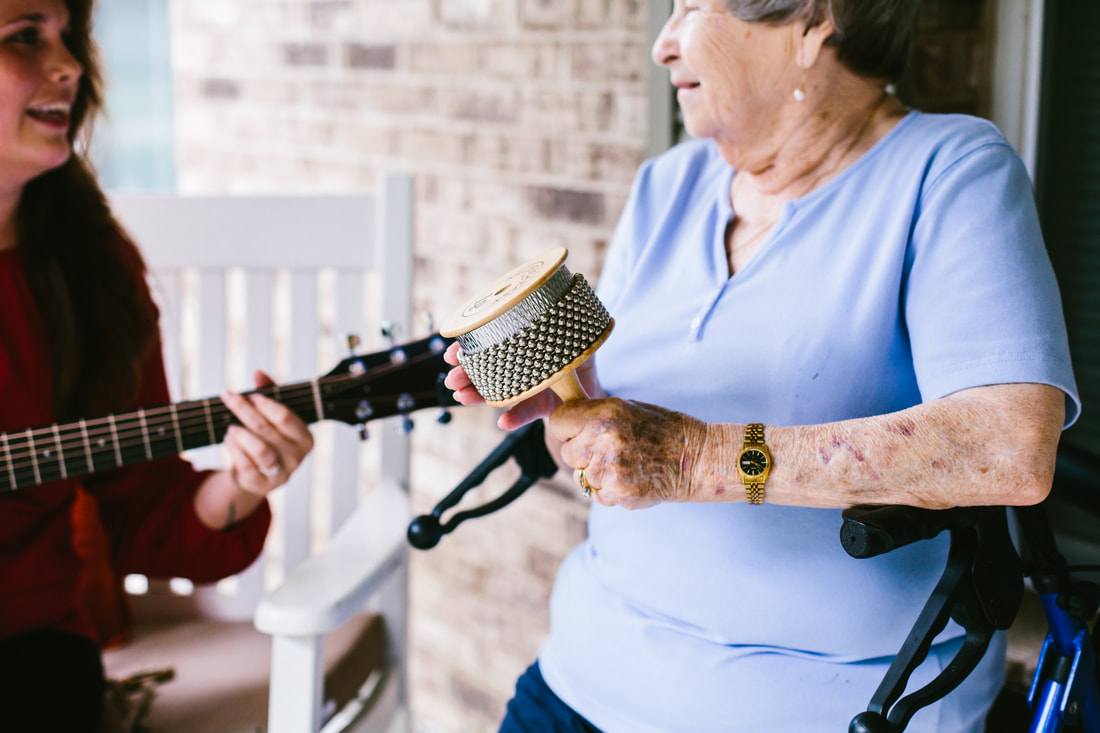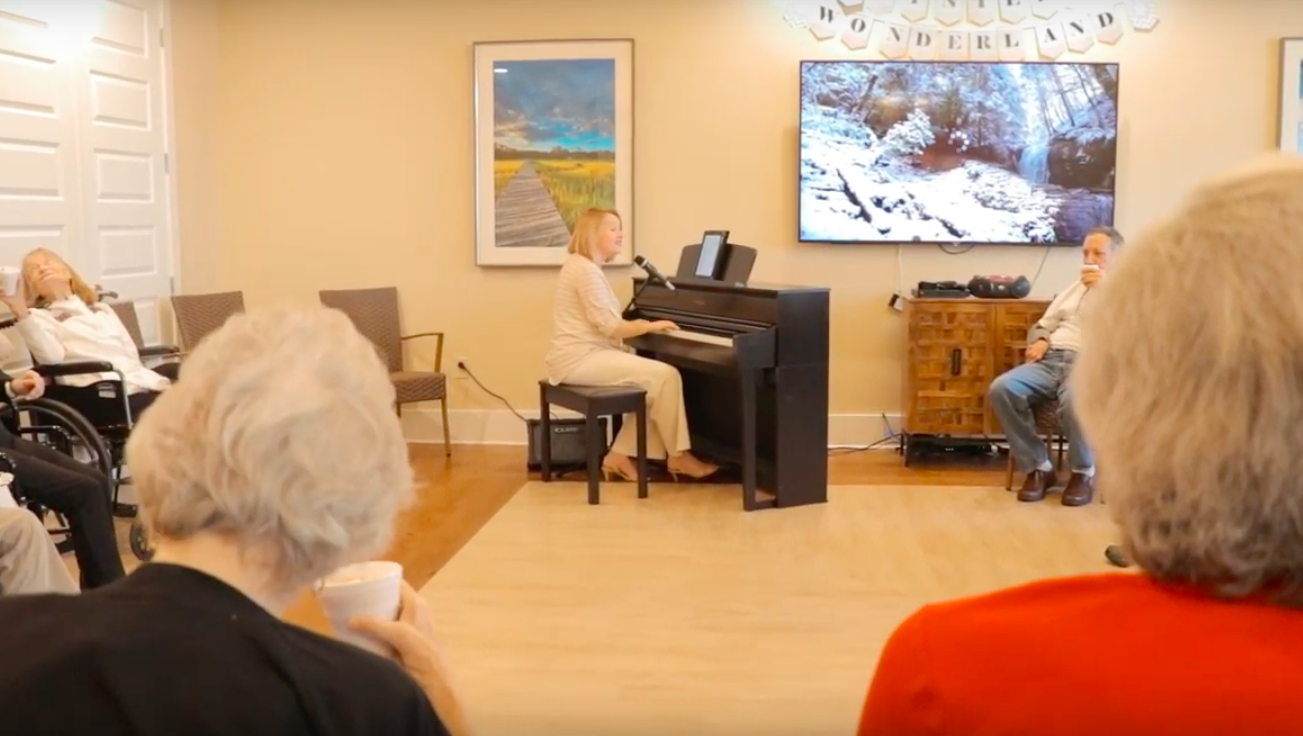 Written By: Adelaide Lovelady (Edited By: Holly Slice) Adelaide is a junior at Charleston Southern University where she is majoring in marketing and minoring in theatre. She has performed at multiple local theaters and her dream job is to be an actress in film! While pursuing her acting career, she would also enjoy being a talent agent. With a marketing and theatre background, it would be the best of both worlds! We are excited to have Adelaide interning with Lowcountry Pianist & Company this semester! IS LIVE MUSIC MORE EFFECTIVE THAN RECORDED MUSIC?I recently went to a jazz bar in downtown Charleston, South Carolina. It was hot and humid and the atmosphere smelt of cigarettes, however, the experience transported me to another time. The bass determined the tempo and set my head to nodding. The piano captivated my interest with melodic key runs while the singer touched my soul. I listened to every note they played, expectantly waiting for where the musicians would take me as I soaked in the simple times of the 40’s. Yet driving back home, listening to my playlist in my car, I did not feel the same draw to the music as when I was in the bar. Why was I unable to fully enjoy music in my car as much as I did the live music? What were the fast neurons signaling to my brain during live music? Music is music, right....? I then began to consider how the older adult communities we serve in Charleston often mention how our live music services are the highlight of their week. They have radios in their rooms, however, the live music provides a more fulfilling experience for them. MUSIC FOR THE MIND, BODY, AND SOUL
It is proven that music changes mood and research shows that live music is even more beneficial in modifying mood. I recently interviewed Tom, a local older gentlemen, who shared that there is no right way you should feel during live music because the experience is often different for each person. He said, “I went to a live concert a couple months ago. They were playing a banjo or ukulele... and it was marvelous. [For me,] it was very restful and calming.” Tom is on to something! According to Melodyful, “Music has a calming effect on our minds. During times of depression or anxiety, listening to music helps relieve one’s stress and elevate one’s mood.” This is why we look for certain genres of music to correlate our particular circumstances. Depending on the music, it can magnify what we are already feeling or it can completely change our mood. In addition to mood, research also shows that older adults who have been diagnosed with dementia are better able to recall memories and be oriented to the present when engaging with music. Music is accessed in all areas of the brain, engaging cortexes involved with mood, memory, and more!
Music goes beyond affecting our mental health. It affects our physical health too! Local Charleston chiropractor, Dr. Norman Bishop states, “Live music effects the physiology of the body. It can affect one’s mind, blood pressure, and heart rate.” He continued explaining that this is why offices play classical music while clients are on hold, rather than the opposite such as heavy metal, because offices want the person on hold to have a positive physiological response to the music, remaining positive and calm. Ashford University states that, “One of the first things that happens when music enters our brain is the triggering of pleasure centers that release dopamine, a neurotransmitter that makes you feel happy.” As soon as music changes our mental state, our physical actions follow suit!
If your soul is happy, you are happy, right? But how can a wave of sound move the human soul and make it feel what it does? Music creates a wide range of emotions in one person, and that is why it is so powerful. Noah Potvin and Julian Argue composed an academic article sharing that “profound spirituality is initiated, captured, and expressed through creative processes, and [the] experiences do not rely on a distinct 'set' of emotions but rather the full spectrum of human emotionality." Diving deeper into that thought, multiple studies have proven that music does have an impact on the soul. Specifically, a study completed by McClean, et al. shared "playing music together engenders for many a sense of hope. It can provide a sense of meaning and connectedness where it helps participants to discover or rediscover their sense of musical creativity and identity." We listen to music for a reason, and if it's not for our soul then what is it for? Many retirement homes host weekly events that include live music for that reason. It gives residents a positive experience and increases their quality of life.
Live music effects the mind, body, and soul on a level that recorded music may be unable to reach. Specifically for older adults, research also shows there is also a social component with live music that is important during a life stage that can sometimes feel isolating. Interacting with friends through a community choir, a musician during their performance, or a music therapist during a private therapy session are incredibly beneficial because the music is built on personal relationships. We feel fortunate to serve over 10 retirement communities in the Charleston, SC area through music performance and music therapy. The relationships we have built with staff and residents are invaluable and we look forward to seeing what is ahead! Contact us today to learn more - we look forward to hearing from you!
1 Comment
4/3/2023 02:35:06 am
Fantastic article! Live music is a powerful tool for its ability to affect the elderly in multiple ways, namely through its impact on the mind, body, and soul. Regarding cognitive development, live music has been demonstrated to positively influence elderly individuals by stimulating the hippocampus, thereby increasing their capacity for memory recall. Moreover, studies have shown that engaging in musical activities can increase overall well-being and decrease levels of stress and anxiety. You have explained everything very nicely. Thank you.
Reply
Leave a Reply. |
|||||||||||||||||||||
SERVICES |
COMPANY |
CONTACT |
LEGAL
© 2024 Lowcountry Pianist & Co. LLC
All Rights Reserved.
© 2024 Lowcountry Pianist & Co. LLC
All Rights Reserved.





